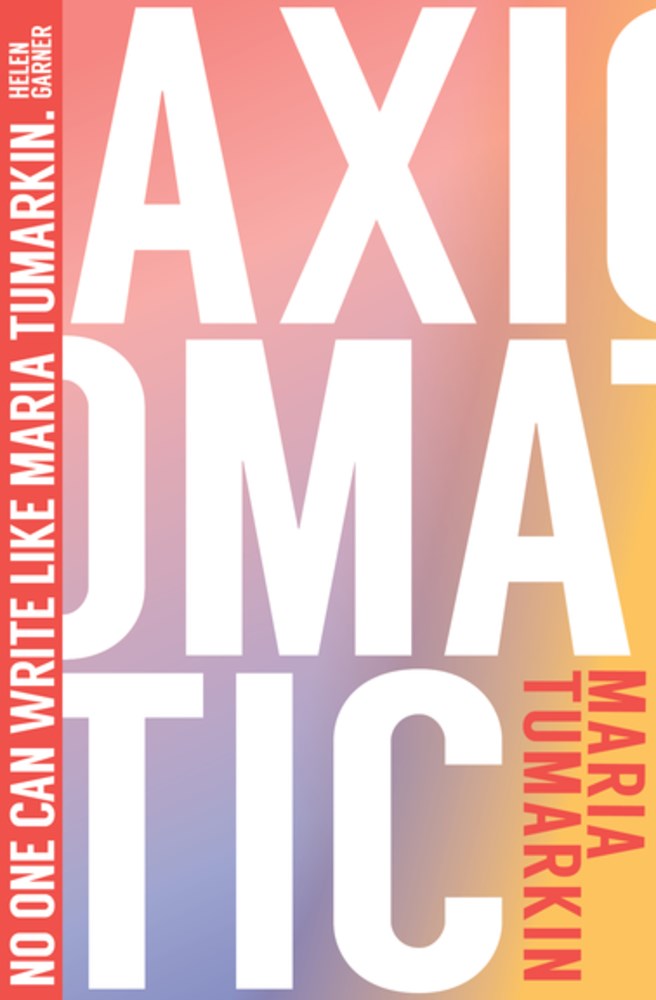No matter who you are, or what you have read before, I can guarantee you that you have not read anything like Maria Tumarkin’s Axiomatic. To say that you “read” it doesn’t even seem accurate to the experience of the book. You encounter her language like you encounter a strange object, the contours of which you aren’t able to trace just yet, not without returning to it again and again, settling into its peculiar curves. Tumarkin’s achievement is that she makes phenomena we have become overly familiar with — not just language, but also gun violence, genocide, persistent structural poverty — wholly unfamiliar, unsettling our assumptions about how trauma and the histories that shape our lives are transmitted.
In a time when our conversation around trauma has stagnated, circling around the notion that to be traumatized is to be stuck in place, or doomed to repeat history’s greatest tragedies, Tumarkin demands that we look closer at the lives of those we call “survivors.” By examining these lives — including her own — Tumarkin transforms the way we talk about history’s role in shaping our present. “How to speak of this beforeness?” she wonders. “How to speak of things passed on if they are not histories and habits so much as structures of feeling, also if its unclear who or what is doing the passing on, plus why? Cycles of abuse. Cycles of poverty. Intergenerational transmission of trauma. Sorry, no can do, I tried and the words stuck in my throat.” She examines current discourse on trauma and violence — and finds it completely lacking. Axiomatic is her astonishing attempt to reinvigorate that discourse, starting with the very language we use to discuss it. It is the most innovative, thrilling, daring work of criticism I read last year.
— Ismail Muhammad


 Axiomatic by Maria Tumarkin (Transit Books)
Axiomatic by Maria Tumarkin (Transit Books) 